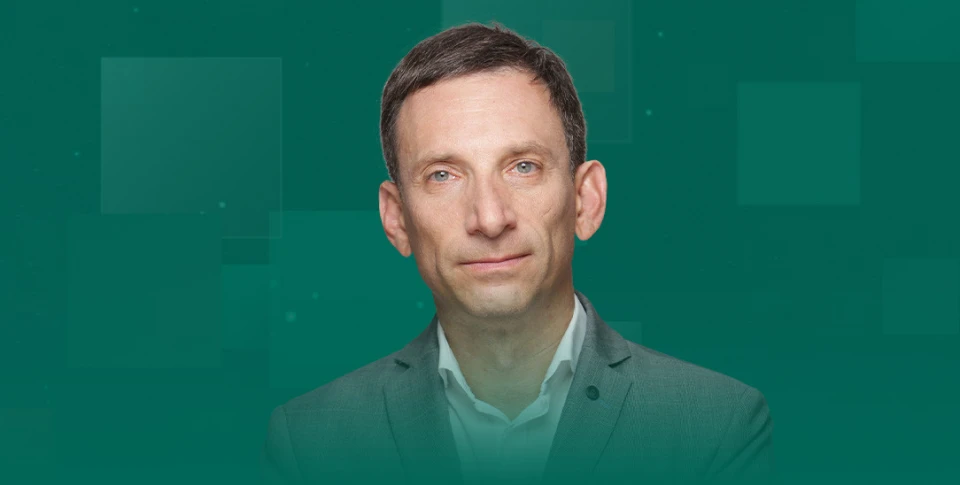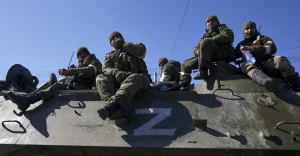
Europe’s division strengthens both Trump and Putin
The European Union has a real secret weapon against the Russian Federation that the United States does not have. It is, of course, Russian assets
Amid French President Emmanuel Macron’s visit to Washington and the upcoming talks between UK Prime Minister Keir Starmer and Donald Trump, another rift is unfolding within the European Union over key decisions related to the Russia-Ukraine war, aid to Ukraine, and the potential role of Europeans in ceasefire negotiations on the Russian-Ukrainian front.
"Many point out that the European Union has a real secret weapon against Russia that the United States does not possess - Russian assets. The majority of Russian funds are held within the EU’s financial system."
In this situation, the United States has nothing to offer the Russian Federation when it comes to its assets, which are currently frozen in European banks. We're talking about €200 billion, while the U.S. controls only $5 billion - an incomparable sum.
Russia's frozen assets could shape the future role of European countries in negotiations between Washington and Moscow. These €200 billion ensure that the European Union cannot be ignored. The U.S. may reach any agreement with Russia, but this massive sum - crucial for Vladimir Putin to stabilize the budget and sustain the Russian economy - will remain in Brussels.
However, Europeans themselves still cannot decide what to do with these assets. Some believe that there is no urgent need to focus on them now, let alone confiscate them, arguing that seizing Russian assets would strip the EU of its main bargaining chip in negotiations with Moscow. Others insist that confiscating Russian assets is fundamentally unacceptable, as it would undermine trust in Europe's financial system. Instead, they propose using only the interest generated from these assets to support Ukraine and fund its post-war recovery.
Meanwhile, some are convinced that the assets should be confiscated immediately to help Ukraine resist Russia, especially amid a potential U.S. withdrawal from financial and military aid. This issue has deeply divided the European Union.
Countries bordering Russia, as well as Scandinavian nations, continue to stress that Ukraine should be supported using these funds. With this money, we can replace U.S. aid if they decide to stop supporting Ukraine, Estonian Foreign Minister Margus Tsahkna recently pointed out. Meanwhile, France has a completely different vision for the fate of frozen assets. French diplomacy firmly believes that addressing their confiscation at this moment is, to put it mildly, inappropriate. This stance may also benefit Emmanuel Macron in his consultations with Donald Trump.
A similar situation is unfolding with regard to military aid, which is also beginning to divide Europeans. Some countries are convinced that military support for Ukraine should be increased. Notably, these are primarily the Baltic and Scandinavian countries. European diplomacy chief, Kaja Kallas, who was previously the Prime Minister of Estonia, has proposed increasing Ukraine's aid package from €7 billion to €20 billion. However, in France, Spain, and Italy, such a proposal is not widely understood. This is due to budgetary issues in these countries and the fact that politicians like Italian Prime Minister Giorgia Meloni and French President Emmanuel Macron simply do not want to clash with U.S. President Donald Trump. They fear that a significant increase in aid to Ukraine, especially when the United States has not yet decided on its approach to future assistance, could openly challenge the American president’s position, thereby hindering the possibility for Europeans to reach a common stance with the U.S. in negotiations with Russia.
"All these divisions could serve as a strong demonstration to the United States that Europe is actually incapable of forming a unified position. This supports Donald Trump's approach, which argues that it is better to work with individual European countries rather than with the European Council and European Commission."
By the way, this also applies to Vladimir Putin, who may also be realizing that the European Union cannot be an alternative to the United States when it comes to supporting Ukraine in the Russia-Ukraine war, because, unlike the United States, it cannot speak with one voice.
The situation may change once a new German government is formed. The new federal chancellor, Friedrich Merz, who has recently begun negotiations to form a coalition in Germany, will likely aim to assume a leadership role in Europe. Unlike French President Emmanuel Macron, he will have the economic tools to ensure that Germany's position is taken into account by other European states. However, this also requires time and, most importantly, a clear position from Germany, coordinated with Paris and Rome. A purely German security initiative, as proposed by Friedrich Merz, is unlikely to be accepted by all EU member states.
And this is, of course, a problem. There is not much time to develop a common position, given the speed at which Donald Trump is pushing forward, and the challenges facing the European Union are indeed enormous. This concerns not only the support for Ukraine in the Russia-Ukraine war but also Europe's role in ensuring its own security in a situation where the United States may distance itself from that security.
About the author. Vitaly Portnikov, journalist, laureate of the Shevchenko National Prize of Ukraine.
The editorial team does not always share the opinions expressed by blog or column authors.
- News













































